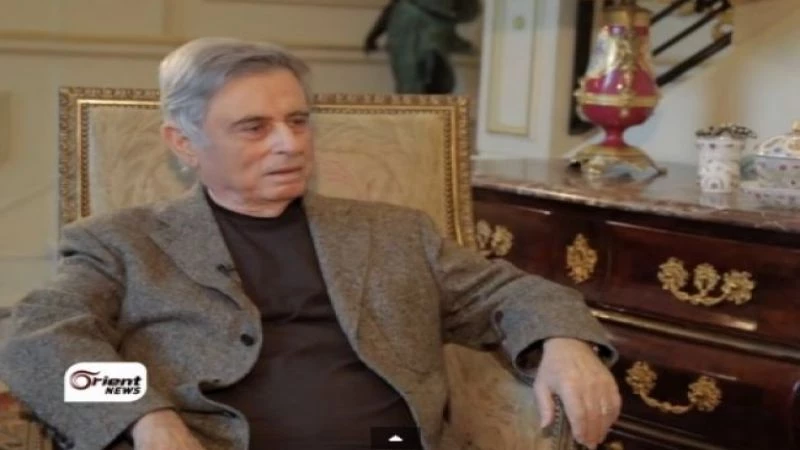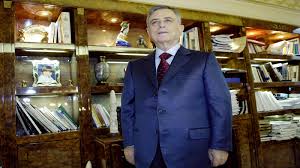The meeting lasted for about an hour. Among the key points mentioned by Abdul Halim Khaddam:
- “The transitional government’s step will not succeed because it was formed far from the internal activists. Individuals who left Syria 20 or 30 years ago or 10 years ago and say, ‘We are the guardians,’ who gave them this guardianship? Legitimacy for any action comes from two sources. The first source is elections, which are not currently available. The second source is national unity, a comprehensive national conference involving all opposition parties, with 85% of them from the inside because the burden is carried by the internal.”
- Answering the question of what leads to stopping the bloodshed today, Khaddam stated: “What leads to stopping the blood, and I say it frankly and repeat it, is military intervention. Bashar al-Assad still possesses significant military power—aircraft, artillery, missiles, and tanks. His fall is inevitable, through revolution, but it will come at a cost. However, his rapid fall can only be achieved through Arab and international military intervention outside the Security Council to save the Syrian people and enable them to determine their destiny.”
- Khaddam denies the existence of popular support for the regime and describes it as a military machine. He adds that the conflict in Syria is not between two groups of the people, as the regime embraced a sectarian tool in an attempt to drag the country into a sectarian conflict, but this will not succeed.
- Commenting on the statement that the opposition and loyalists in Syria differed on many issues but agreed on rejecting his affiliation to either side, Khaddam said, “Assessing the regime is natural. Assessing the opposition is a misreading of reality and the future. No one can exclude anyone, and whoever believes he can, I tell him in advance: ‘You are mistaken,’ and I do not aspire to power.”
- Maaz Al-Khatib “made a mistake” by calling for dialogue with the regime, and he lost a significant part of his popularity because of that. The issue is not decided by an individual; it is a national matter.
- The one leading the regime in Syria today is not Bashar al-Assad. The Iranians are the ones leading the regime in Syria. The fall of Assad ends the size of Iranian regional influence.
- Division in Syria is impossible, and the overwhelming majority of Syrians reject this division.
- Khaddam takes responsibility for the Hama massacre, attributing it to Hafez al-Assad. For him, his concern and work are focused on foreign policy.
- When the regime falls, files will be opened, and truths will be revealed.
- Hafez al-Assad made fatal mistakes by bequeathing rule and turning power into dictatorship.
- The Ba’ath Party is finished.
Khaddam answers the question: Are you ready for a trial after the fall of the regime? “Any citizen has the right to confront me if there is any behavioral or political mistake.”
- Khaddam denies Hafez al-Assad’s sale of oil to Israel.
- Khaddam denies visiting Israel and describes the accusation as ridiculous.


